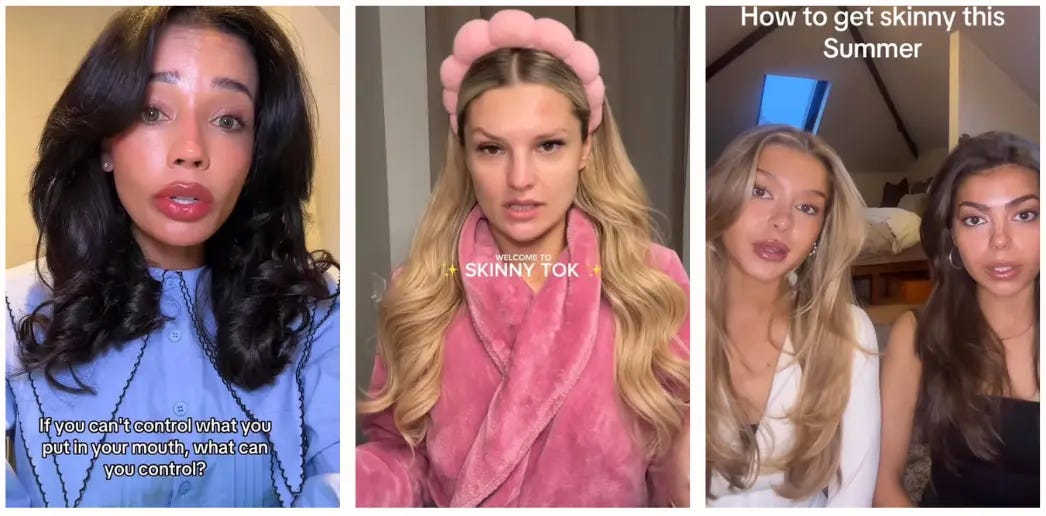
Body Type is about body culture — how people think, talk, and act about bodies nowadays. Check out some of my most popular posts. Please subscribe for free if you like them. To read everything, upgrade to a paid subscription for less than $1 per week. I’m also writing a book coming out next year, more on that here! Thanks for reading.
Nothing I say will keep women who desperately want to be skinny from annihilating themselves with starvation diets, because I’m not skinny. Even at my lightest adult weight I outweighed by at least 40 pounds what I assume their goal weight range is. Why would they listen to anything I have to say, if they are singularly focused on looking a way I don’t look?
I know how to safely, sustainably lose body fat and get more muscular because I did that years ago. But I won’t reach the young women on #SkinnyTok, where they “glorify extreme thinness and share restrictive eating content, including ‘what I eat in a day’ videos featuring very limited meals, calorie-counting routines, and so-called ‘hacks’ for eating less.” They don’t care about my thoughts on how you can make your body leaner without destroying it or how you can strength train without getting “bulky,” which can transform your relationship to food for the better. Why would they want to hear from me, when compared to #SkinnyTok idol Liv Schmidt, who captioned this photo “Sip, don’t chew,” I’m bulky as a sectional sofa?
I can’t help these women in their current state of obsession with a Liv-esque look, and neither can other elder millennial, not-thin women who make videos about how #SkinnyTok reminds them of the pro-ana Tumblr of their youth (inevitably making this conversation about themselves more than the current problem), or who condemn and villainize these young women for unabashedly desiring something their milieu demands they desire. Since when have scold and scorn been effective motivators for behavioral and attitudinal change in young people, especially?1
Sources quoted in articles about #SkinnyTok can’t help these young women when they only say how this needs to change, these girls should love themselves, the culture must become more accepting of all bodies. Yes, of course, but how? When Liv Schmidt is making $130,000 per month from “how to be skinny” content on Instagram, how do we reach women at the beginning of their adult lives and careers who know thinness tends to be rewarded more than the hard, quiet work of body image healing?
How can anyone steer them away from a potential path of deprivation-driven self destruction? Who could really help them?
Other thin women could.





